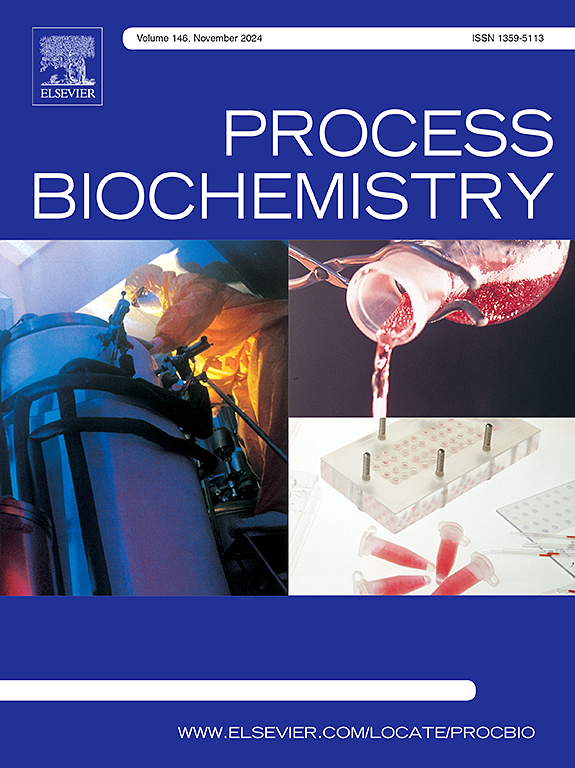Enhanced PE degradation and diversity of bacterial biofilm by applying organic fertilizer inoculated with mixed degrading bacteria
IF 3.7
3区 生物学
Q2 BIOCHEMISTRY & MOLECULAR BIOLOGY
引用次数: 0
Abstract
The combined effect of degrading bacteria and organic fertilizers may have an impact on the degradation behaviour of plastics remaining in the soil. In this experiment, the degradation effect and biofilm characteristics of plastics in soil were investigated for 90 days by adding organic fertilizer inoculated with degrading bacteria for secondary fermentation. The results showed that plastics typically exhibited weak weight loss and surface-specific changes after incubation. In terms of mass loss, the weight loss of the experimental group inoculated with the bacterial mixture was as high as 17.1 %, while the weight loss of the organic fertilizer not inoculated with degrading bacteria was only 6.2 %. In addition, the increase in carbon-oxygen functional groups and the change in oxygen/carbon ratio observed by XPS, FTIR, etc. indicate that plastics are gradually oxidized and degraded in soils while organic fertilizers inoculated with degrading bacteria have been applied. In addition, the addition of organic fertilizers inoculated with degrading bacteria to soil containing plastics enriched the diversity of bacterial biofilm communities on the surface of the plastics, with the main strains being Bacteroidota, Firmicutes and Proteobacteria.The results of this study may provide a theoretical basis for efficient plastic degradation and pollution control in soil.
求助全文
约1分钟内获得全文
求助全文
来源期刊

Process Biochemistry
生物-工程:化工
CiteScore
8.30
自引率
4.50%
发文量
374
审稿时长
53 days
期刊介绍:
Process Biochemistry is an application-orientated research journal devoted to reporting advances with originality and novelty, in the science and technology of the processes involving bioactive molecules and living organisms. These processes concern the production of useful metabolites or materials, or the removal of toxic compounds using tools and methods of current biology and engineering. Its main areas of interest include novel bioprocesses and enabling technologies (such as nanobiotechnology, tissue engineering, directed evolution, metabolic engineering, systems biology, and synthetic biology) applicable in food (nutraceutical), healthcare (medical, pharmaceutical, cosmetic), energy (biofuels), environmental, and biorefinery industries and their underlying biological and engineering principles.
 求助内容:
求助内容: 应助结果提醒方式:
应助结果提醒方式:


